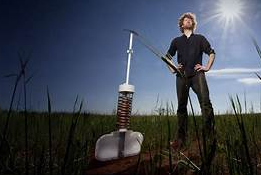Innovative Radiosonde Design Tackles Electronic Waste
Post-doctoral research fellows Shane Kyi Hla Win and Danial Sufiyan Shaiful from the Singapore University of Technology and Design (SUTD) have clinched the 2024 James Dyson Award in the sustainability category with their invention, the airXeed Radiosonde. The device, inspired by the natural autorotation of maple seeds, is designed to reduce electronic waste by making weather monitoring equipment more sustainable and reusable.
The airXeed Radiosonde replicates the spinning descent of maple seeds, allowing it to land more controllably in designated areas after weather data collection, significantly reducing the environmental impact of traditional radiosondes. These devices, typically released by weather balloons, contribute to about 48 tonnes of e-waste annually, as they are often lost after use due to their descent into remote or inaccessible areas.
The invention features modular components for easy repair and recycling, using sustainable materials like balsa wood and foam. It also incorporates machine learning to adjust its flight path, avoiding aviation hazards and ensuring a safe landing near collection zones.
Sir James Dyson praised the innovation, noting its potential to save both environmental resources and costs. The award comes with a prize of $50,500, which the winners plan to use for further development, including real-world testing in partnership with weather stations and radiosonde manufacturers.
In the medical category, Olivia Humphrey from Ireland won for her scalp-cooling device aimed at preventing hair loss in chemotherapy patients, showing the broad spectrum of innovation the James Dyson Award supports.
With this recognition, SUTD’s researchers aim to scale their solution, potentially impacting weather monitoring practices globally, with interest already expressed by the Meteorological Service Singapore for reducing risks at key locations like Changi Airport and Paya Lebar Air Base.


